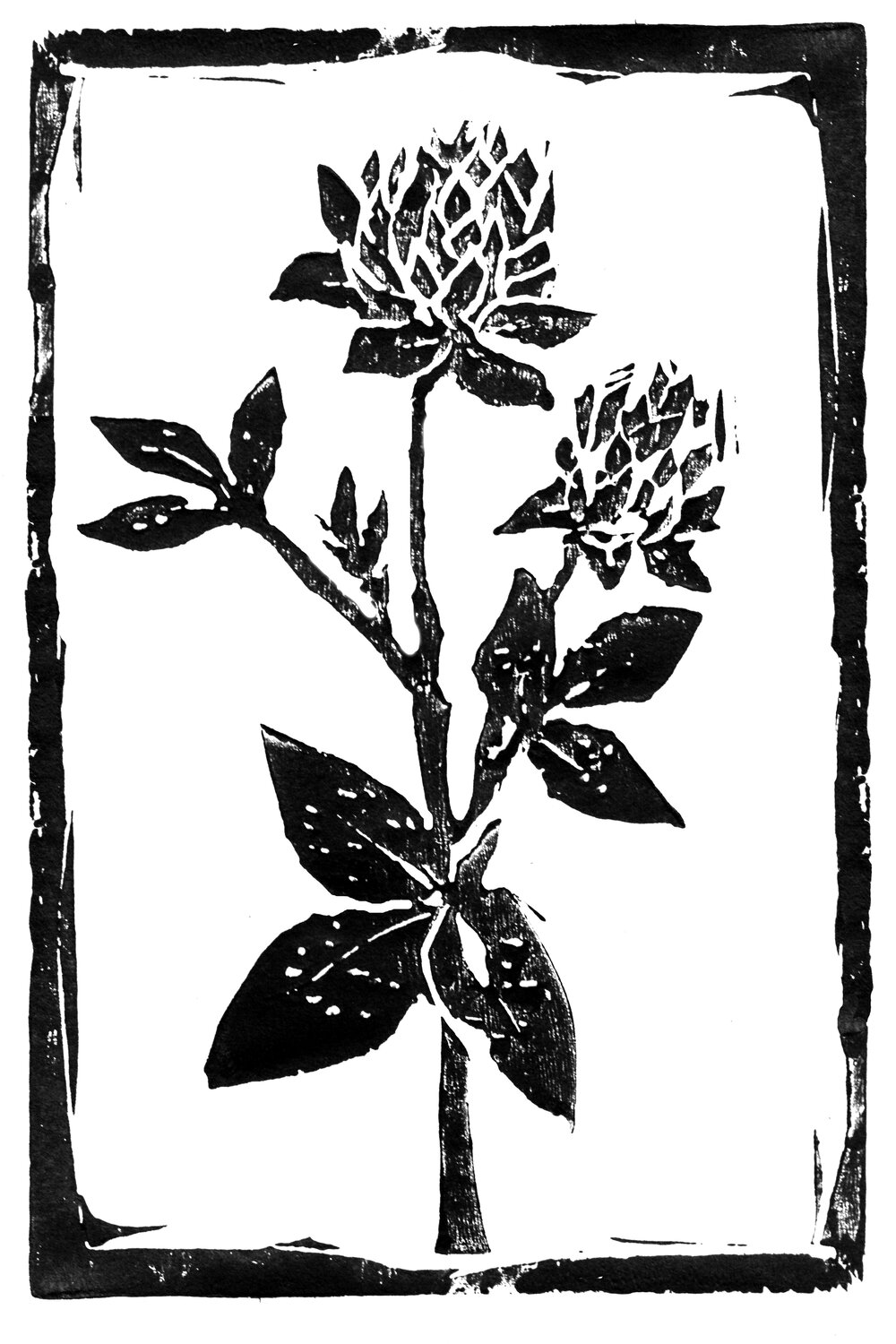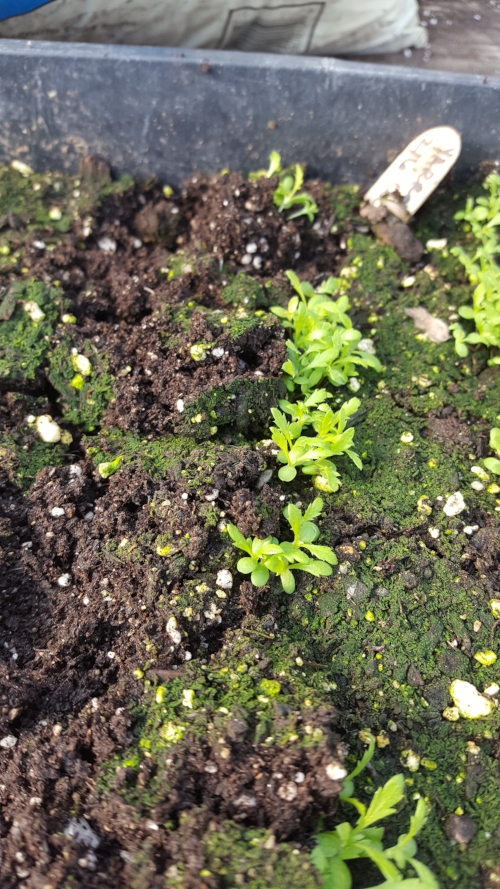Today I potted up the first plants of the season. I seeded them back at the beginning of February, and today, their leaves were large enough that I moved them along to a larger pot. While I worked, I had time to reflect on thoughts that have been stirring around for a few days. The kernel of all these thoughts is the mind-blowing amazingness of a seed. Sure, everyone knows that an acorn, given time, can become an oak. But have you really thought about it? Have you really tried to stretch your mind to think through all that goes in to a poppy seed becoming a three-foot-tall poppy plant, laden with flowers and then with millions of seeds of its own?
Many of the seeds I have been sowing lately are for flowers, rather than vegetables, and it seems that many of these seeds are incredibly tiny. A packet labeled "1,000 seeds" has enough in it to fit in a half teaspoon with room to spare. It's just boggling to try to think of all that potential locked up in such a small package. And that's just the strictly biological potential of the seed - think of the cultural, food, and pharmaceutical potential! I have been learning lately from Rowen White about the indigenous seeds of North America, and the people who grew them and created the varieties that they stewarded. It is amazing to think of all the variety and meaning wrapped up in that variety.
Seeds are, for me, the most obvious summary of the wonder that is the natural world. When I think about this farm that we steward, and the name that we have given it, Laughing Earth, the song that plays in the background of my mind is Sonoran Hope and Madness, by Roger Clyne and the Peacemakers. The relevant lyric goes like this:
"And while the rest of us were sleeping
She sent flowers gently creeping
And the waters slowly seeping through
The cracks in the pavement and the cracks in the dam
So now everything we steal away
We know someday she´ll take it back again"
Some people may find it a bit dark to take such joy in our ending, in our impermanence, but that's not really how I think about it. I am taking joy in the cycle, in the ongoing flow of life, with or without us, and especially without us. It somehow takes the pressure off of me to try to fix everything, knowing that all I accomplish will be erased anyway. Life finds a way to continue. Seeds lay dormant, in the soil, in a jar, packed away, waiting for an opportunity. Water finds a way, through the air, through the soil, through eons of time. Down with empire, up with Spring, as Ed Abbey would say! We are all stardust, as Carl Sagan would say.
So why do anything, if everything we do is wiped away with time? Well, for the joy of it. I love the thought of helping Mother Nature along, helping her scouts of flowers creep over more of the world, making pathways for water to flow. There is joy in forging a mutualistic relationship with a plant. Without the indigenous people of Central America, there would be no corn, and many of them would argue that without corn, they would not be who they are. Corn needs us, and we need corn. Cows need us; they would not do very well as wild animals. I think it is the most human thing we can do, to create a relationship with the living world. To dive deep and let slip the mask we wear in society - maybe even try to reshape our society into a place where we don't need that mask.
My mother, an historian, tells me that in the 1870 census, many men who owned businesses - mills and the like - and also owned farms, listed themselves as farmers on the census. It was desirable to be a farmer in those days. Land was the source of power. I am not saying that we should go back to 1870s society - I have other issues with things that were going on, and I *really* appreciate running water - but I am saying that we need to get back to acknowledging the power held in land. We need to elevate those that work with the land to feed us all, and give back the control of that land to the people who need that land to survive. Maybe I'm biased, but I think that farming is the most important profession - not that there aren't other important ones! - and that we humans, our relationship with the land is the most important one that we can steward.
I'm sure I have much, much more to say about the value of our relationship with land, but probably this crazy person has rambled on enough. In closing, some more of my favorite poetry, relevant to my thoughts in this post. An excerpt from Wendell Berry's Mad Farmer Liberation Front:
Ask the questions that have no answers.
Invest in the millennium. Plant sequoias.
Say that your main crop is the forest
that you did not plant,
that you will not live to harvest.
Say that the leaves are harvested
when they have rotted into the mold.
Call that profit. Prophesy such returns.
Put your faith in the two inches of humus
that will build under the trees
every thousand years.
Listen to carrion – put your ear
close, and hear the faint chattering
of the songs that are to come.
Expect the end of the world. Laugh.
Laughter is immeasurable. Be joyful
though you have considered all the facts.

